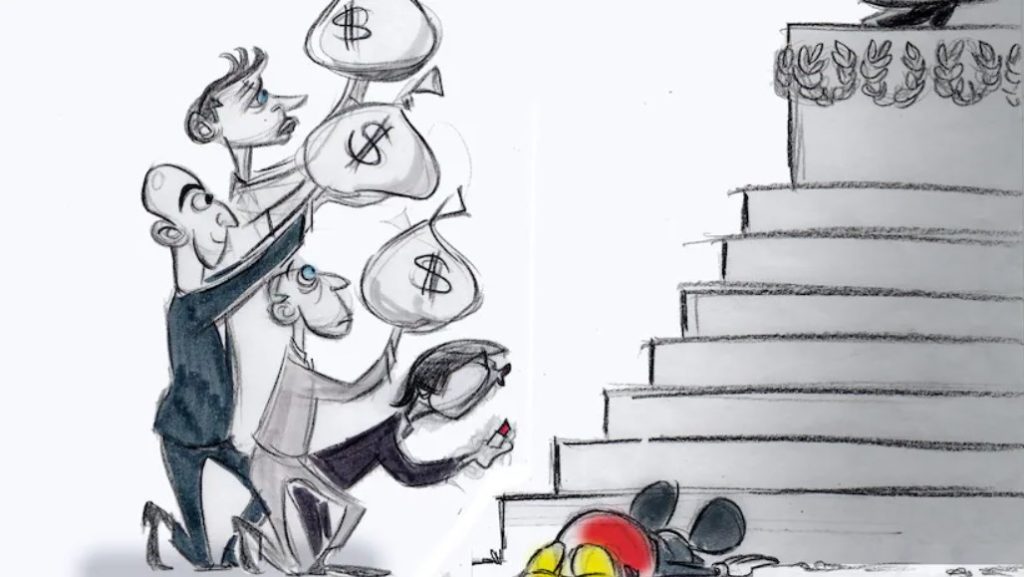My aunt is either an Enneagram 7w6 or a 6w7 and everything I say to her gets churned into a soupy vat of grey untrue-ness where the distinction between truth and lies gets dissolved by doubt and cynicism, and she can choose to believe whatever she wants based on how much of a political “underdog” it makes her feel. It’s disheartening and frustrating, so I’ve been loving all the resources that Beatrice Chestnut has on youtube for understanding Type 6.
In preparation for a new workshop she’s been putting together, Chestnut along with Uranio Paes did a brilliant webinar last year on The Collective Shadows of the three centers of intelligence in the Enneagram: the head, heart, and the body. Sixes are a head type, and the one interview I’ve been listening to recently talks about the collective shadow of the type Six as giving away our power and our rights to heros that they find they’re able to believe in because they lack their own belief in their authority over their own minds and lives. The early loss of belief in their own father leads to a lifetime of search for something to believe in and when they find it, they make it big with their projection.
Of course, the projection arises from a deeper [unconscious] fear that they aren’t believing the right thing, and that fear is that foundation of the Type Six collective shadow: authoritarianism.
When fear dominates a collective, a country, a group of people, it contributes to creating a more hierarchical world view. Fear has a lot to do with authority; Sixes tend to have authority issues, either really wanting a good authority, an archetypal father figure to come in and save us and protect us and provide a strong presence in the face of all things that we’re afraid of, or skepticism of power- the fear of the other. Examples of that in the world today is the way authoritarians actually use xenophobia to get people to go against each other, and give more power to the authority. Fear of the other and desire for a protective authority- a fantasy that this authoritative leader, this strong person will come in a do all we need for us, which can lead to becoming a true believer, which is something that Social Sixes in particular are at risk of. Like will become a true believer in this powerful authority, and then will give over all our rights to that authority so they’ll take care of us, and not seeing the downside, the potential problems of that authority in power, the way they may be taking control out of self-interest, as opposed to caring for the people.
I appreciate this idea that we take for granted, but everyone should have a measure of control and authority over their lives, and Sixes become dangerous when they give our freedoms away to authoritative leaders when they are actually seeking to fix early father issues with a strong hero to project onto.
Another interview that I listened to today was with an Enneagram Type 6 whose personality structure turns around doubt. He talked about what it’s like to spiral in that vicious cycle:
Trent: …One of the key insights I found was that doubting never comes to the end of doubting. And that’s something that for me, as a Six was hard to see right away because doubt feels like something that’s going to resolve in security. If I question it, if I’m skeptical, if I find the truth of it, it’s going to resolve in some foundational secure place, but actually, catching the mind as the doubting mind was a very helpful insight.
Beatrice: What you tell yourself is that if you keep doubting and questioning, it’s going to take you somewhere. Like you’re going to get to the answer, you’re going to find certainty, but especially for a Self-Preservation Six, you never really get there. It’s the illusion that it’s going to get you somewhere and it really just keeps you trapped in a circular experience.
Trent: That’s it, and it’s so pernicious and insidious because it’s so compelling, like all these patterns are so compelling- all of us in our own way. Doubting can always doubt whatever comes up, so even the phrase, “Doubting will never come to the end of doubting” can be doubted. But at some point you just have to believe that… you just have to see that the whole pattern is something that can be seen, noted, and perhaps put down. That was a huge step for me as a Self-Preservation Six: “Doubting does not come to the end of doubting”, you just have to put it down.
My aunt was in New Orleans recently when a Muslim ISIS extremist plowed his vehicle into a crowd and killed 14 people. I’ve been struggling to know what to say to her. It goes without saying that I’m glad she wasn’t hurt in the attack, and it’s scary to think that we are living among people who have so much hatred for us. Very cautiously, I want to balance that, though. As ugly and evil as his action was (and yes, Muslim terrorism is on the rise, as covered extensively by the New York Times today), and as much as governments need to protect us from terrorism, I also want to balance that with a request to not use this to give away our rights to a man who is presenting himself as a hero when he really has no plan to deal with terrorism, but who will gladly do away with government structures that give our lives stability. Who will gladly take our personal freedom and authority we have over our lives, the very thing Sixes want and need for a sense of security.
I’m still trying to think about how to word my e-mail, but I’m grateful for Beatrice’s articulation of the Six, the type I have understood the least thus far.
